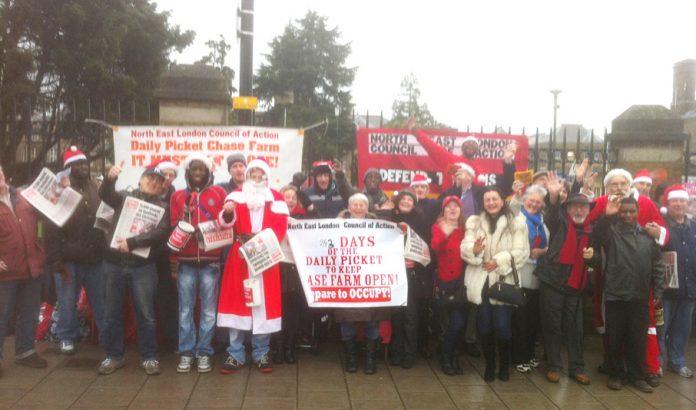
THE Trafford strategic programme board has announced its support for closing the A&E at Trafford General Hospital, the hospital from which Nye Bevan launched the NHS in 1948.
Also planned to go are emergency surgery, most in-patient surgery, the intensive care unit, and the paediatric observation and assessment unit. By extension medical in-patients would also go.
This decision will be ratified by the PCT cluster and the new commissioners on 24th January 2013.
In July, the regional health authority NHS North of England decided to replace all these services at Trafford with an urgent care centre open from 8am to 12pm from Spring 2013, as a nurse-led minor illness and injury unit.
Only day surgery, an elective orthopaedic treatment centre and outpatients would be left, turning Trafford into ‘cold’ site, attractive to the private sector.
The hospital, has been steadily run down over the last three years, leaving it with less than 280 beds and a turnover of £97m. Its maternity unit was closed in 2011-12 ‘Making it Better’ reconfiguration.
The plan to close Trafford A&E and all acute services is part of the ‘Greater Manchester Healthier Together Programme’ which aims to close up to four more A&Es, leaving a few larger hospitals, and shifting much hospital care into the ‘community’ of revamped federated GP surgeries and clinics.
Driving these changes is the requirement to save £1.3bn, as part of the national £20bn ‘QIPP’ cuts, by 2015.
l A further 4,000 PCT and SHA managers received redundancy notices before Christmas.
According to the Labour Party, this will cost £630m in redundancy pay.
There is a massive shed out of management jobs as part of the abolition of Primary Care and Strategic Health Authorities under the Health and Social Care Act 2012.
Clinical commissioning groups, helped by commissioning support groups and Local Area Teams of the NHS commissioning board, are taking their place.
Already, the Department of Health has paid out £1bn in redundancy packages as part of the restructuring due to the Health Act.
While many middle grade managers may be forced onto the dole, some at the top end, could end up hiring themselves back to the new commissioning bodies as private management consultants, in a double rip-off for the health service.
There has been a disgraceful record of this type of thing amongst elite NHS managers in the past.
For example, the former Chief executive of Hammersmith hospital in 2007 took a pay-off of £300,000 and then went on to be paid £3,400 per day as a management consultant advising Dorset County Hospital on how to make job cuts.